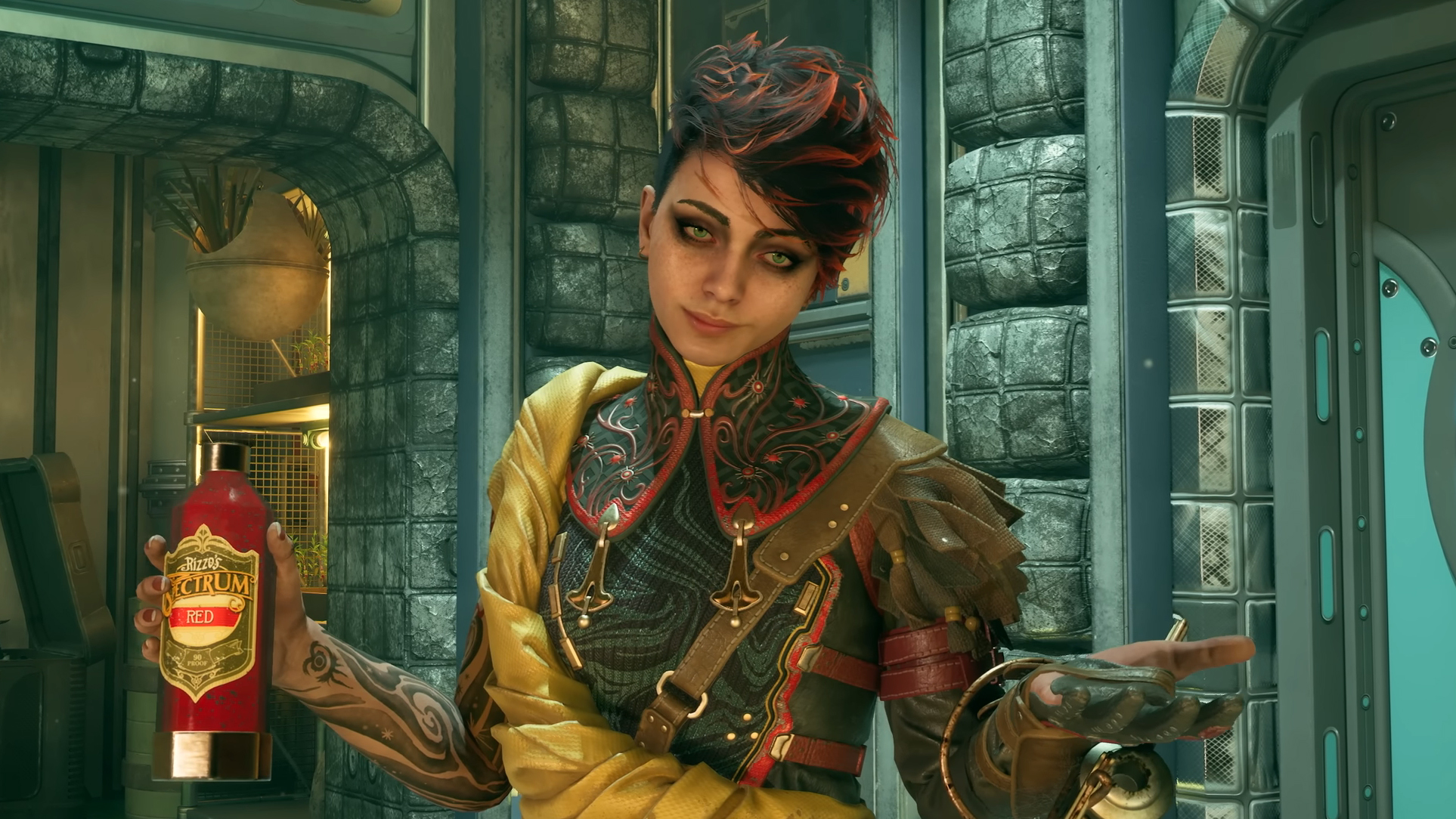The Outer Worlds 2's senior narrative designer is 'really happy' if you miss out on major characters with 'thousands of lines of dialogue'
"We're really making a game that you can play multiple times and have a very different experience."

As games become larger, more elaborate and significantly more expensive to make, the concept of player agency and optional paths becomes a riskier prospect for RPG developers. For Obsidian's The Outer Worlds 2, however, it's an essential feature, according to senior narrative designer Joe Fielder.
"That's been one of the directives from our three directors from the start, to have a game that really is reactive to how the player wants to play," Fielder tells us. "When I work on the narrative for The Outer Worlds 2, it's not my story. I'm writing to give you, the player, options of how to roleplay as the character you rolled up at the beginning."
It's one place I can categorically say that the sequel is significantly better than its predecessor. The Outer Worlds 2 gives you a lot of incredibly distinct ways to build your character, starting with your background and initial perks, and then through all the optional flaws you'll encounter as you play, along with the perks you can pick when you level up.
"Sometimes that means you have a funny line," says Fielder, "sometimes that means you get access to an area you wouldn't, or ally with somebody that you wouldn't, or you get a mission that you wouldn't have seen otherwise."
This doesn't suit everyone. And that makes sense. RPGs are a big time investment. Most people aren't going to play them more than once, and while that doesn't mean you can't appreciate that you're charting your own course, I can absolutely see why someone might be disappointed that they can't see everything in a single playthrough.
When I work on the narrative for The Outer Worlds 2, it's not my story
Joe Fielder, senior narrative designer
But Obsidian is still very keen to encourage multiple playthroughs, and thus made sure returning space adventurers could enjoy different routes through the story, individual quests or just when you're out exploring alien worlds.
"Leonard Boyarsky, our creative director, is very big on having areas that you wouldn't necessarily see unless you played a certain way or made certain choices," says Fielder. And that decision really pays off. The best parts of my own playthrough have stemmed from finding secret areas or using my perks to do things that other players might not see. It's why I focused on building up my observation skill. They're little treats.
Keep up to date with the most important stories and the best deals, as picked by the PC Gamer team.
"We had a new team member the other day," Fielder adds, "who had just played the game and was like, 'Oh, I'm really worried that the player could miss this option, and miss out on this major, fantastic character and thousands of lines of dialogue if they make this choice'. I'm really happy if they do that, because they can make a different choice the next time they play. We're really making a game that you can play multiple times and have a very different experience."
In our The Outer Worlds 2 review, this was what cemented the game, in Ted's mind, "as not just a good RPG, but a really excellent one", specifically at the game's halfway point.
"The first half of the game crescendos with a pair of classic Obsidian conversation boss fights, and I had a big, dumb smile on my face as I contemplated long, scrolling lists of dialogue options—some available to me, some greyed-out—gated by different skills, background traits, quest choices, and even an out-of-the-way optional conversation I'd had over 10 hours previously."
I don't mind a linear RPG—otherwise I probably wouldn't love JRPGs as much as I do—but this is really what keeps me pouring hours and hours into the genre.

Fraser is the UK online editor and has actually met The Internet in person. With over a decade of experience, he's been around the block a few times, serving as a freelancer, news editor and prolific reviewer. Strategy games have been a 30-year-long obsession, from tiny RTSs to sprawling political sims, and he never turns down the chance to rave about Total War or Crusader Kings. He's also been known to set up shop in the latest MMO and likes to wind down with an endlessly deep, systemic RPG. These days, when he's not editing, he can usually be found writing features that are 1,000 words too long or talking about his dog.
- Jeremy PeelContributor
You must confirm your public display name before commenting
Please logout and then login again, you will then be prompted to enter your display name.

